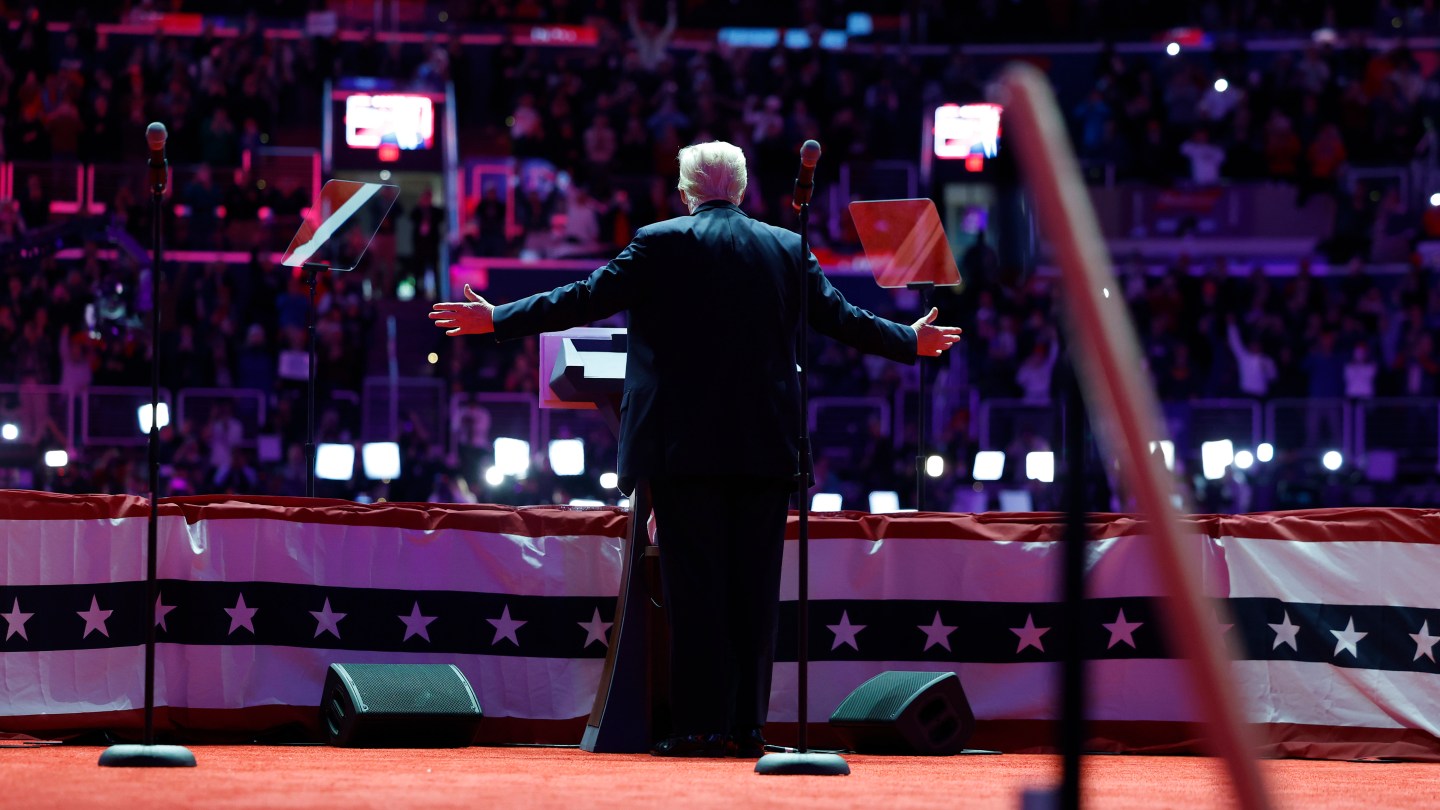TV producers have some useful advice on how to navigate a global entertainment industry threatened by Donald Trump’s tariffs war that appears drawn from a world leaders’ manual on how to survive an Oval Office ambush.
Don’t lose the plot and stay focused. “We have a plan. We’re sticking with the plan and just sort of ignoring the distractions,” Justin Stockman, vp of content development and programming at Canada’s Bell Media, a major co-production player, told the Banff World Media Festival on Tuesday.
Stockman added if anything actually materializes from the U.S. president’s erratic trade policy and threats, deal with it then. “We’re just trying to stay focused,” he said during a panel on international co-financing and co-productions for global content.
The panel focused on global streamers especially becoming more open to windowing and licensing as they shift from prestige series to procedurals during Hollywood’s current cash crunch. “The business in general is going a little back in time,” Alon Aranya, Los Angeles-based producer and writer with Paper Plane Productions (Tehran), told the panel about operating in a fast-changing U.S. market.
“It (U.S.) is now much more leaning in the direction of procedurals, streamers are pushing subscribers to take the ad tier level of subscriptions,” Aranya added. Amid that drop in U.S. acquisition budgets and a shift to mainstream series, European media players touted their own incentives to draw the major studios and streamers away from the U.S. market, whatever Trump’s threatened tariffs regime.
Jens Richter, CEO of commercial and international at Fremantle Media, advised Banff delegates not to get caught up in ever-changing Trump trade policy threats and retreats. “Don’t get confused by what happens on a daily basis. The mid-term trend will stay. Shows need to drive audiences, need to be a little more positive,” Richter said.
International entertainment creatives and execs reacted with both shock and head-scratching in early May when Trump called for a 100 percent tariff on foreign movies, especially as the U.S. entertainment industry is so intertwined with the global industry.
Moritz Polter, executive producer and managing director of Windlight Pictures, said a welcome fallout from Trump’s apparent bid to help Hollywood was American and British producers are suddenly more willing to work with the world. The lure is rich tax credits and other production incentives and more stable markets to expand into.
“As the market is changing, the U.S. and the U.K. that were really difficult to co-produce with have to start to come to grips that they have to do so, and that helps all of us on the panel and most European countries,” Polter argued. And just as major streamers like Amazon Prime Video, Netflix and Disney have opened global production hubs in the U.K., European producers are also looking to tap British co-production financing and star talent in front of the camera.
Morad Koufane, director of international and young adult drama at France Televisions, said once rare projects from potential U.K. partners have markedly grown in number. “The number one opportunity in the international market for me is the U.K. market. They are keen to do international co-productions and co-financing, but for true collaboration on a story, on a project together, due to the situation, they are really more open. We receive many projects from them that we never received,” Koufane told the panel.
The goal in the new collaborations is pairing the established track record of major American and U.K. producers with the existing knowledge of European broadcasters on how to navigate the international co-production realm.
Laura Mae Harding, commissioning editor for international co-productions at ZDF, talked about a recent new partnership with the BBC, a fellow public broadcaster, to support indie producers in both markets to develop and produce high-end dramas together. “I see the biggest potential in collaboration and not to be scared of new ways to find good partners for shows, because ZDF has a long tradition in co-productions,” she explained.
ZDF and the BBC earlier greenlit Honey, a spy thriller from Sid Gentle Films, and a second series, A Good Girl’s Guide to Murder, a YA mystery thriller co-produced with Netflix and made by Moonage Pictures.
And as windowing is back among major streamers, Harding said all options to partner need to be explored. “We would always look first for exclusivity in our territory for the amount of time that we would like. But nothing is really off the table. If a project is undeniable, then there are ways to find the right partners,” she argued.
